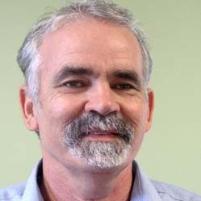People 'concerned' about regional media standards, even before diversity fears widely known
Published on 18 September, 2006
Regional Australians are concerned about declining standards of local journalism, even before taking into account the potential for reduced competition as part of regulatory changes.
That is according to CQU academic Dr Denis Cryle, from the School of Contemporary Communication, who has been following debate about the potential for media mergers due to flagged legislation.
Dr Cryle said a recent UNSW study which examined potential mergers suggests the number of media outlets may be halved in some regional Queensland centres.
 "Townsville, with 8 existing players could be reduced to 4, while Bundaberg, where Senator Paul Neville is leading the charge for the Nationals against the new media changes, could be reduced from 6 to 4 without infringing the proposed regulations," Dr Cryle said.
"Townsville, with 8 existing players could be reduced to 4, while Bundaberg, where Senator Paul Neville is leading the charge for the Nationals against the new media changes, could be reduced from 6 to 4 without infringing the proposed regulations," Dr Cryle said.
He said the Nationals have succeeded in winning concessions from Senator Coonan and the Liberals by insisting that mergers involving print, radio and TV be approved by the Australian Competition and Consumer Commission (ACCC).
"However, the minimum stipulation for at least 4 regional players appears inconsistent in its outcomes across regional centres according to the same UNSW study, in so far as a media company with 2 radio stations would be on an equal footing with a company that acquired a major radio, television and newspaper in the same market.
"The Coalition government has previously ignored advice about introducing regulatory safeguards when it decided to dismantle the much-criticised cross-ownership regime.
"The Productivity Commission, for example, in a detailed 2000 report, recommended the application of a media specific public interest test for all media mergers with direct input from the Australian Communications and Media Authority (ACMA) as a precondition for such changes".
Dr Cryle said National party senators are currently arguing for stricter limits on regional media mergers to prevent one company from holding more than 2 out of 3 media formats.
"One of the difficulties with the current process is that a number of the large regional media players have not made their submissions available to the public," he said.
"The major regional media players have long argued for a relaxation of Paul Keating’s cross-ownership rules to allow for cross-promotion, shared news services and other economies in their operations.
"Radio stations which have expanded with the introduction of FM will in all likelihood be purchased by print and TV interests".
Dr Cryle said the UNSW report concludes that mergers between a local newspaper and television station could create local market leaders, with a capacity to dominate the local media scene irrespective of competition, and with significant flow-on effects to other regions.
"The Nationals argue that regional market leaders would be in a position to dictate advertising rates to local businesses as well as heavily influence local politics," he said.
"Knowledge of media ownership may be scant in regional Queensland but local communities throughout Australia are registering their concern, with residents feeling desperately let down by their current news outlets and a decline in the standards of journalism."

